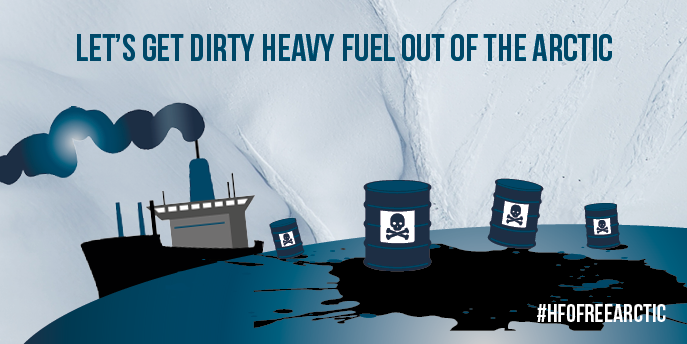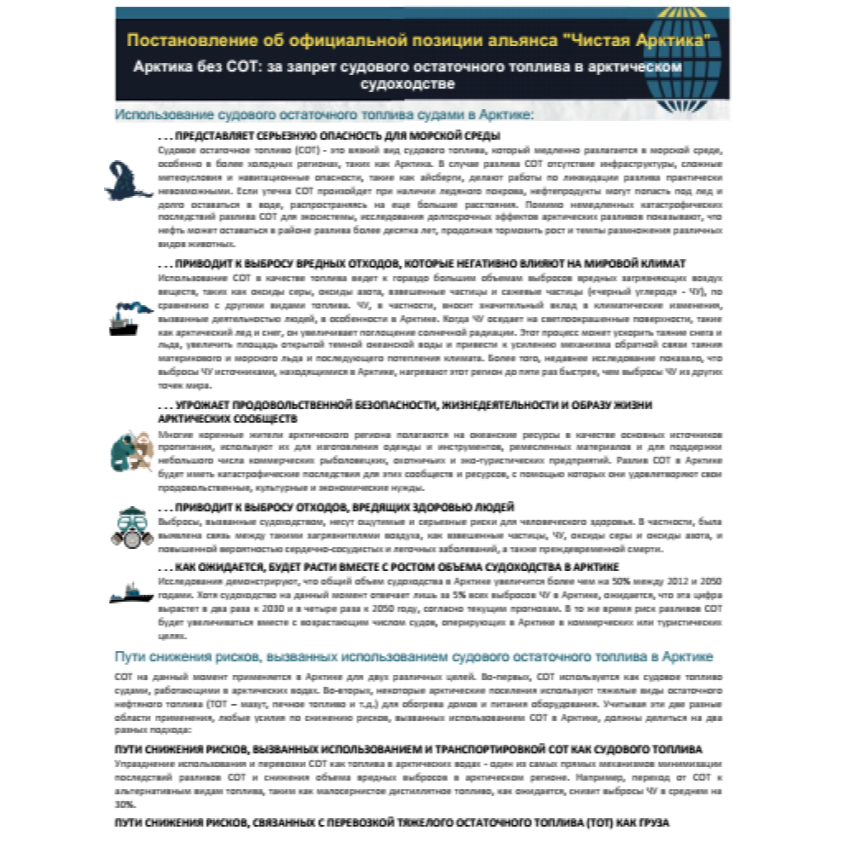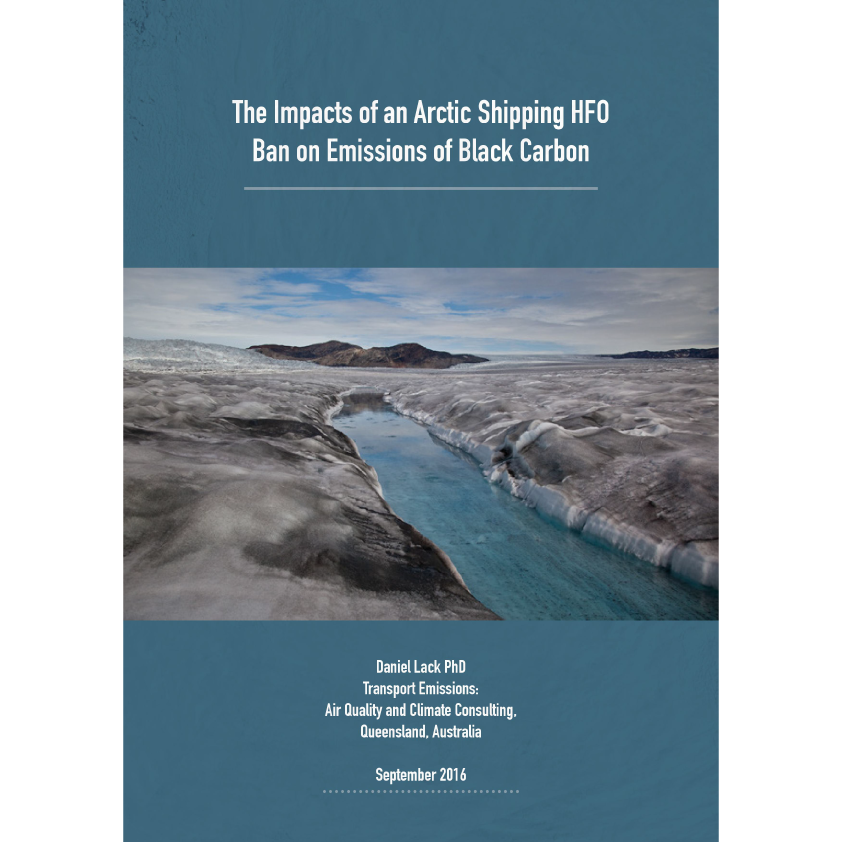As 2017 Sea Ice Minimum Reached, A Step Forward Towards a HFO Free Arctic

With the Arctic facing such challenges, it important to act swiftly to put in place the best possible protection for the region. In early July, the Clean Arctic Alliance attended the International Maritime Organization’s (IMO) Marine Environment Protection Committee (MEPC 71) in London, where we welcomed an agreement made by member nations to move forward on a proposal to identify measures to mitigate the risks posed by the use of heavy fuel oil (HFO) and its carriage as shipping fuel in Arctic waters.
Постановление об официальной позиции альянса “Чистая Арктика”

Position Statement by the Clean Arctic Alliance – HFO-Free Arctic: Ban Heavy Fuel Oil from Arctic Shipping (Russian language)
The use of heavy fuel oil (HFO) by vessels operating in the Arctic poses a major risk to the Arctic marine environment. It produces harmful emissions that negatively impact the global climate, threatens the food security, livelihood and way of life of Arctic communities and produces emissions that impact human health. As the use of HFO is expected to rise as vessel traffic in the Arctic increases, the Clean Arctic Alliance strongly advocates the phasing out of the use of HFO as the most effective mitigation strategy as a matter of priority.
The impacts of an Arctic shipping HFO ban on emissions of Black Carbon

A report by Daniel Lack PhD
This report demonstrates how a shift from low quality high sulphur residual fuels to high quality low sulphur distillate fuels will result in a 50% reduction in Black Carbon (BC) emissions and estimates what impacts a HFO ban would have on emissions of other pollutants and takes into consideration the technical and financial aspects.

